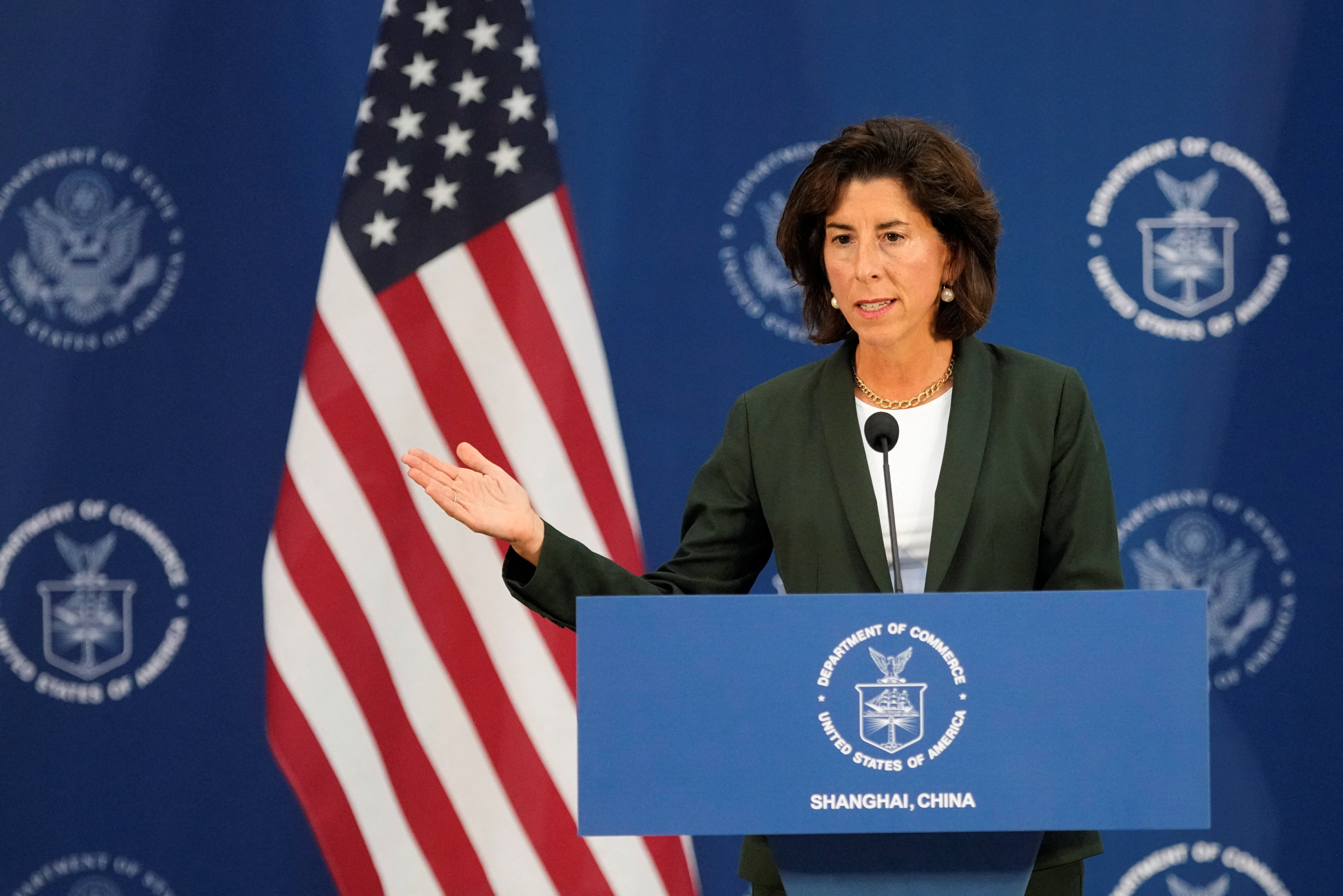
U.S. Secretary of Commerce Gina Raimondo attends a press conference at the Boeing Shanghai Aviation Services near the Shanghai Pudong International Airport, in Shanghai, China August 30, 2023. REUTERS/Aly Song Acquire Licensing Rights
WASHINGTON, Sept 3 (Reuters) – U.S. Commerce Secretary Gina Raimondo warned China in interviews broadcast on Sunday that the patience of U.S. business was “wearing thin,” saying American companies deserved a “predictable environment and a level playing field.”
The two biggest economies in the world used to be each other’s largest trade partners, but Washington now trades more with neighboring Canada and Mexico, while Beijing trades more with Southeast Asia.
While in China recently, Raimondo had said there was strong appetite among U.S. businesses to make the relationship work and that, while some actions of the Chinese government were positive, the situation on the ground needed to match the rhetoric.
“China is making it more difficult,” Raimondo told CBS’s Face the Nation. “I was very clear with China that we need to – patience is wearing thin among American business. They need and deserve a predictable environment and a level playing field. And hopefully China will heed that message so we can have a stable growing commercial relationship.”
Raimondo has said U.S. firms faced new challenges, among them unexplained large fines, raids on businesses and changes to a counterespionage law.
“I was very clear, direct and firm in all of my conversations with my Chinese counterparts,” she told CNN. “I didn’t pull any punches. I didn’t sugarcoat anything.” Raimondo also said that she had brought up to Chinese officials that her email was hacked in advance of her late August trip to China.
“They suggested that they didn’t know about it and they suggested that it wasn’t intentional,” she told CNN. “But I think it was important







:format(jpeg)/cloudfront-us-east-1.images.arcpublishing.com/tgam/CZJTAHIJ5FNRDLD7K7GOJBXVE4.JPG)







